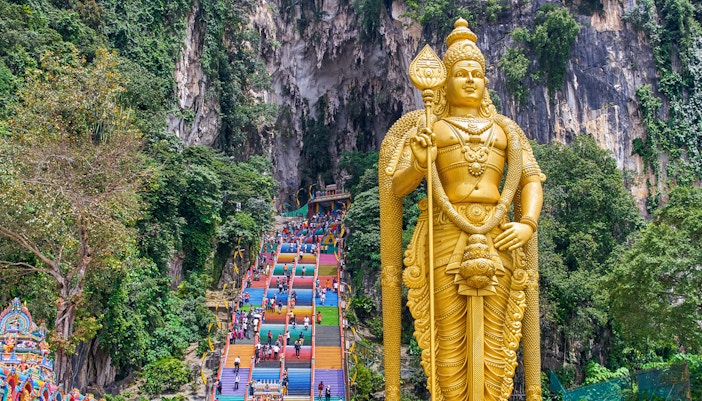Tips for visiting during Thaipusam
1. Arrive early: Get there before 7am if you want to avoid the densest crowds and catch the start of key rituals.
2. Use public transport: Parking is nearly impossible during the festival time. Take the KTM Komuter train directly to Batu Caves station.
3. Dress respectfully: Cover your shoulders and knees. Lightweight, breathable clothes are ideal. Many wear yellow or saffron, but it’s not mandatory.
4. Respect the space: Avoid taking intrusive photos, especially of people in trance or during piercing. Always ask permission first.
5. Stay hydrated: Bring water. The heat, combined with the physical exertion, catches many visitors off guard.
6. Watch your belongings: Monkeys roam the site and have a reputation for grabbing food or loose items.
7. Prepare for sensory overload: There’s loud music, tight spaces, and intense rituals. If it’s too much, step back and observe from a quieter spot.
8. Sample the culture: Food stalls line the area with vegetarian South Indian meals and snacks. It’s part of the experience.










